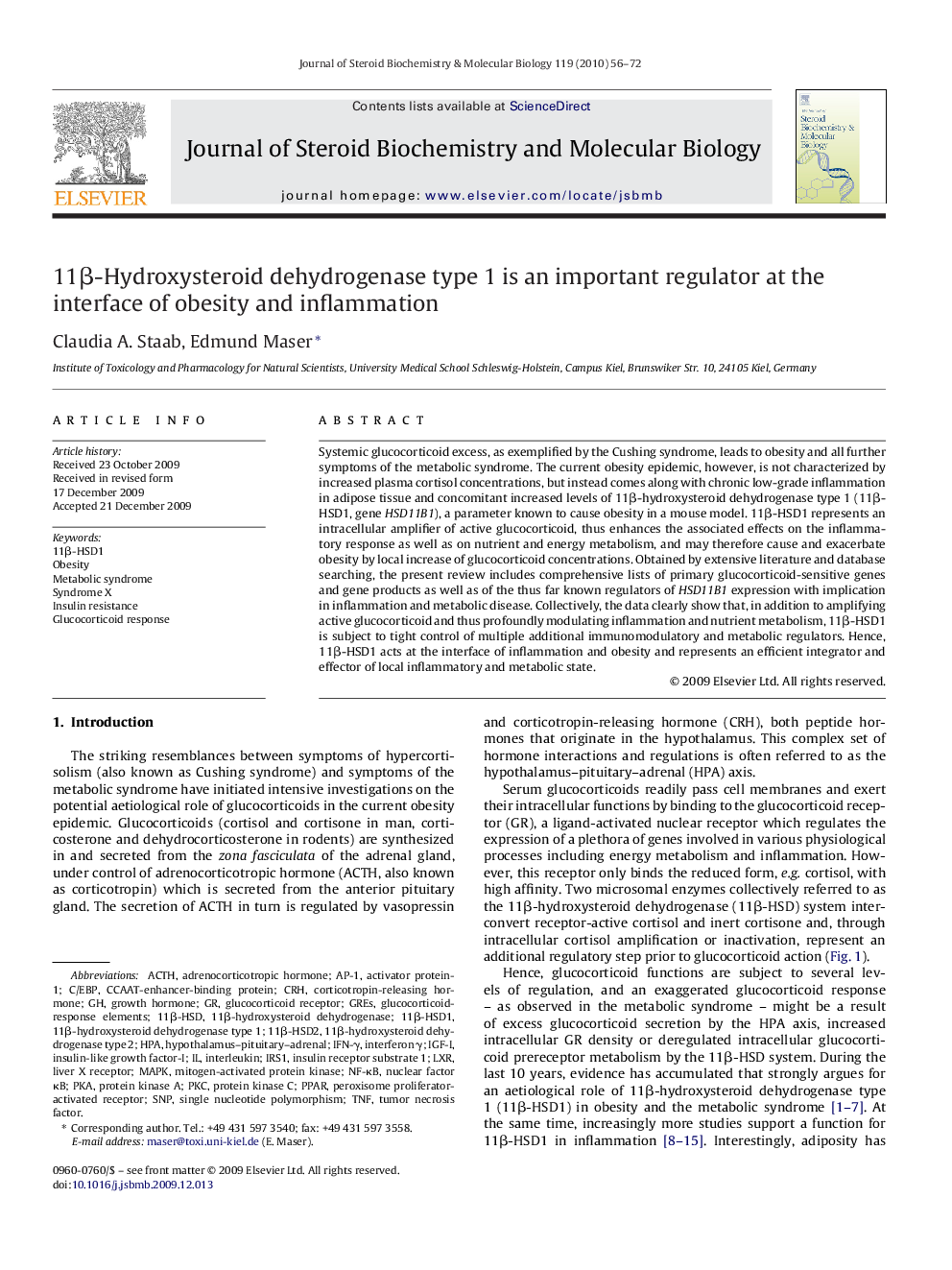| Article ID | Journal | Published Year | Pages | File Type |
|---|---|---|---|---|
| 1992100 | The Journal of Steroid Biochemistry and Molecular Biology | 2010 | 17 Pages |
Systemic glucocorticoid excess, as exemplified by the Cushing syndrome, leads to obesity and all further symptoms of the metabolic syndrome. The current obesity epidemic, however, is not characterized by increased plasma cortisol concentrations, but instead comes along with chronic low-grade inflammation in adipose tissue and concomitant increased levels of 11β-hydroxysteroid dehydrogenase type 1 (11β-HSD1, gene HSD11B1), a parameter known to cause obesity in a mouse model. 11β-HSD1 represents an intracellular amplifier of active glucocorticoid, thus enhances the associated effects on the inflammatory response as well as on nutrient and energy metabolism, and may therefore cause and exacerbate obesity by local increase of glucocorticoid concentrations. Obtained by extensive literature and database searching, the present review includes comprehensive lists of primary glucocorticoid-sensitive genes and gene products as well as of the thus far known regulators of HSD11B1 expression with implication in inflammation and metabolic disease. Collectively, the data clearly show that, in addition to amplifying active glucocorticoid and thus profoundly modulating inflammation and nutrient metabolism, 11β-HSD1 is subject to tight control of multiple additional immunomodulatory and metabolic regulators. Hence, 11β-HSD1 acts at the interface of inflammation and obesity and represents an efficient integrator and effector of local inflammatory and metabolic state.
